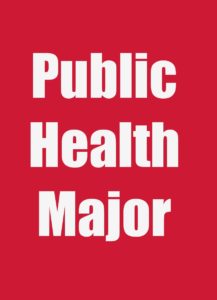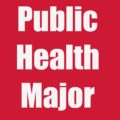
What is a Public Health Major ?
A public health major is the academic discipline to which an undergraduate student formally commits while in college or university. A student who successfully completes all courses under public health qualifies for an undergraduate degree in public health. A public health major is usually administered by select faculty in an academic department and most public health colleges offers the undergraduate Bachelor of Arts (BA) in public health , the Bachelor of Science (BS) in public health or both.
What Can You Do With A Public Health Major?
Public health represents a growing and dynamic field with opportunities to address the world’s most pressing health problems. A public health degree creates opportunities and opens an array of possibilities. When you study public health, you will gain insight into how government actions; access (and lack of access) to health care; communication and education; and funding all factor into the spread, treatment, and prevention of disease. Your course work will also cover fields such as epidemiology (the science concerned with the spread and control of disease), preventive medicine, health economics, and health ethics. This unique skills and knowledge are in high demand as the world moves from the era of curative to preventive medicine. There are different types of public health jobs and careers with public health degree each with its unique demands and peculiarity. See The Best MPH Programs
Public health professionals are in charge of evaluating and regulating the health needs of the population and focusing on improving health where they can. Public health professionals also work to promote healthy behaviors and habits on an individual, family, professional or community level. According to the Association of Schools of Public Health (ASPH), over a quarter of a million more public health workers will be needed globally by the year 2020. Public health workers in most countries are currently stretched because they are serving more people and communities with less personnel and fewer resources. In addition, the diminishing number of public health staff due to training gaps also means that there are fewer public health workers globally (there were 50,000 fewer public health workers in 2000 than in 1980). Currently, there is a global shortage of public health physicians, bio-statisticians, epidemiologists, public health nurses, public health educators, and behavioral health experts.
When you major in public health there are endless opportunities for you in the following fields:
-Biostatistics
-Social and behavioral sciences
-Nutrition
-Epidemiology
-Health policy and management
-Disease control
– Occupational and environmental health sciences.





